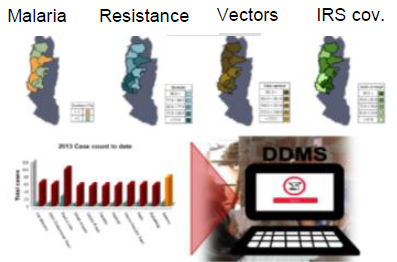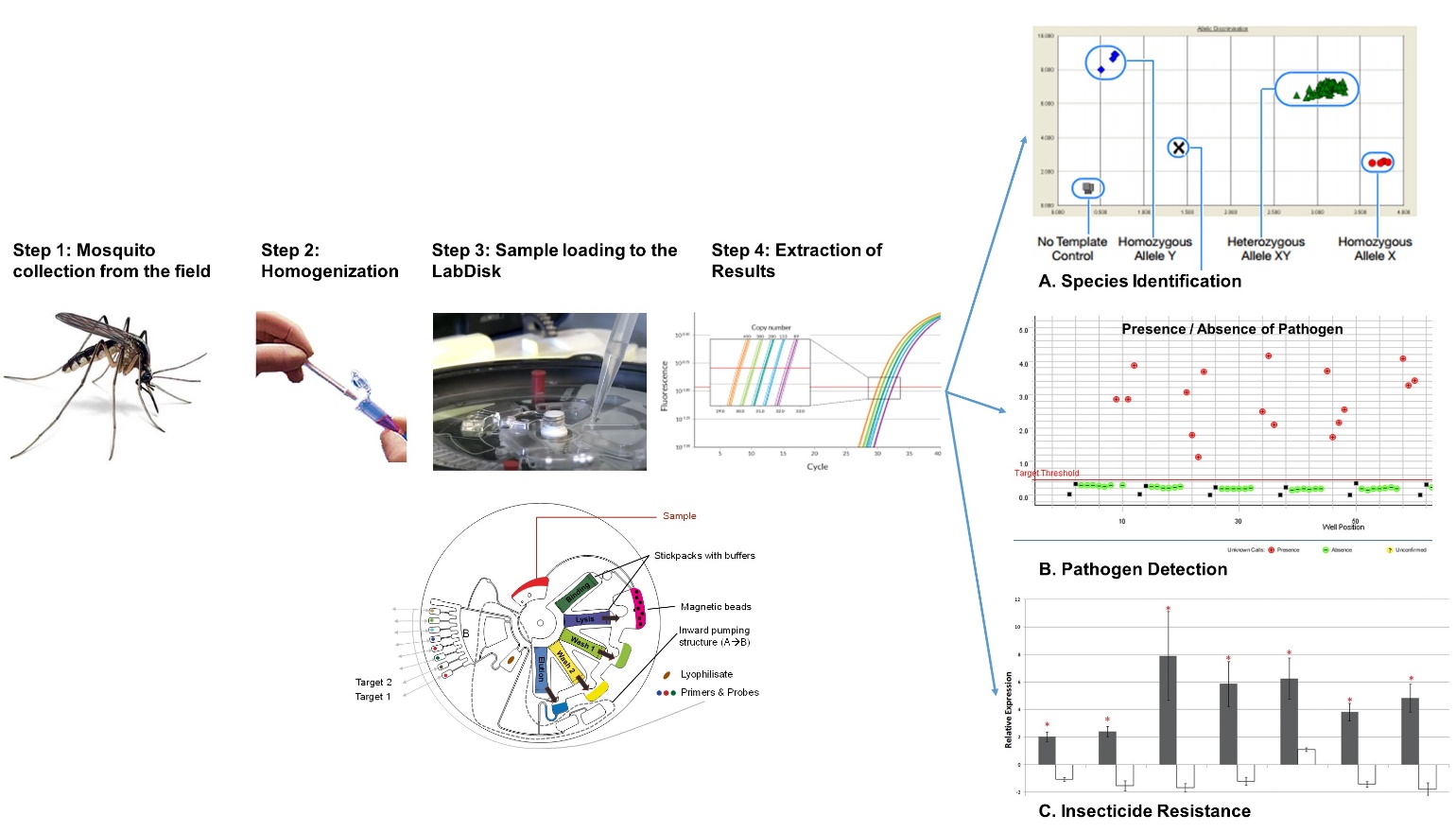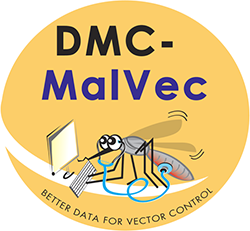The project
An effective communication system of data and guidelines
The “GAME” is a user-friendly modern ICT platform that employs interactive ways of communicating guidelines and exemplifying good practices of successful insecticide resistance management use in the health sector, will be also employed in the DMC-MALVEC project. The GAME incorporates the entomological data that will be obtained and produced by the LabDisk and the DDMS, respectively, to (1) educate end user communities about the usefulness and value of these data and (2) teach the end users how to best understand these data in terms of vector control and insecticide resistance management practices.

Data Management system to integrate and organize entomological data
The Disease Data Management System (DDMS) is a software / customized database that has been already successfully tested and used by some disease control programmes, to manage vector control data and convert information into customized reports, maps and graphs, providing a versatile and comprehensive picture of entomological and operational data for programme members and stakeholders.

A diagnostic platform to monitor mosquito populations
We will develop a fully integrated and automated multiplex vector-diagnostic platform (LabDisk) for monitoring the species ID, the infection status of mosquitoes and the insecticide resistance profile of malaria vector populations. For the first time in an operational setting, the LabDisk will enable the capture of novel, operationally relevant RNA markers, such as those indicating detoxification-based resistance, that can currently only be analysed in centralised labs using sophisticated equipment. The system will provide sample-to-answer determinations, which will substantially facilitate the uptake of protocols in target countries. It will be also capable of analysing pools of mosquitoes (as well as individuals) to perform genotyping at substantially lower cost, compared to the individual assays (PCR, ELISA, TAQMAN, microscopic examinations) that are currently extensively used in Africa. This ensures that the LabDisk system will provide relevant, timely data that is operationally applicable to resource poor malaria control settings.
Malaria, a major public health challenge
Malaria is a life-threatening disease causing more than 500,000 deaths every year in sub-Saharan Africa, mostly in children under five and pregnant women. Prevention of the disease is best achieved by vector control which, today in Africa, relies on the use of insecticides. Monitoring mosquito vector populations is an integral component of most vector control programmes and a prerequisite for effective interventions. Several individual methods are used for this task, however, in resource poor malaria endemic countries, there are many obstacles to the uptake of these protocols, as well as further challenges in organizing, interpreting and communicating vector control data.
The objectives are:
- Ensure the development of appropriate information dissemination and communication platforms
- Ensure the deployment to market of the DMC-MALVEC system
The objectives are:
- to pilot and implement the integrated LabDisk, DDMS & GAME system in four sub-Saharan countries in Africa
- to facilitate evidence based decision making for the optimum use of malaria vector control interventions
The objectives are:
- To adapt and upgrade the DDMS to cater for gene expression data and genomic DNA markers from pooled sampling methods, in conjunction with data from individual or aggregated data sets, and interface with the LabDisk
- To set up and configure DDMS in Cameroon and Côte d’Ivoire, using available historical data.
- To modify the GAME to include an adaptive platform to accommodate local landscapes and expand the scope of the GAME to include data outputs from the LabDisk as part of the GAME storyboard
- To set up and validate the GAME in Zambia and Ethiopia
The objectives are:
- To design, develop and manufacture the nucleic acid assays to monitor the species ID, the infection status of malaria vector populations as well as their insecticide resistance profile
- To design and manufacture the disc cartridge that will perform the in situ sample preparation and sample-to-answer analysis
- To assemble and manufacture the reader that will process the disc and provide the diagnostic result
- To validate the fully automated and integrated multiplex diagnostic platform (LabDisk) in the lab
The objectives of this WP are:
- to develop a document that defines the technical specifications and end user requirements that have to be met by the system;
- design the studies and experiments that are needed to demonstrate the systems performance and efficacy;
- develop a risk management plan for the project; and
- to assure quality control throughout the project.
Objectives
To coordinate and manage all aspects of the work and ensure the successful implementation and completion of the project. Specifically to:
- Co-ordinate the technical activities of the project to ensure project objectives are met.
- Manage resources and administration
- Manage and communicate the knowledge produced by the project.
- Liaise and interface with European Commission structures and other projects within the Call
















